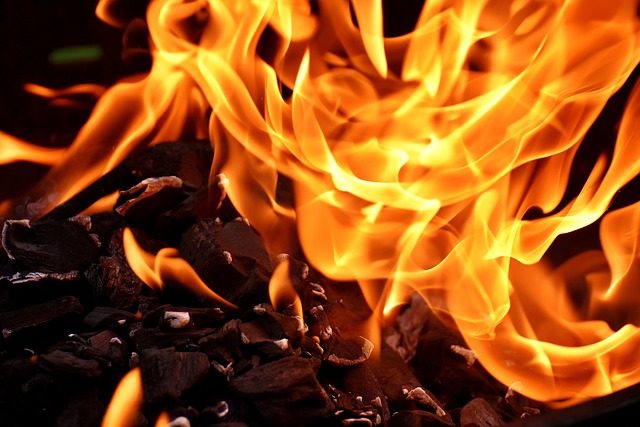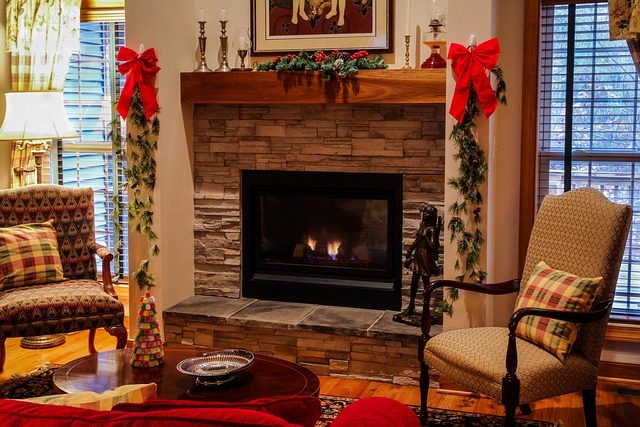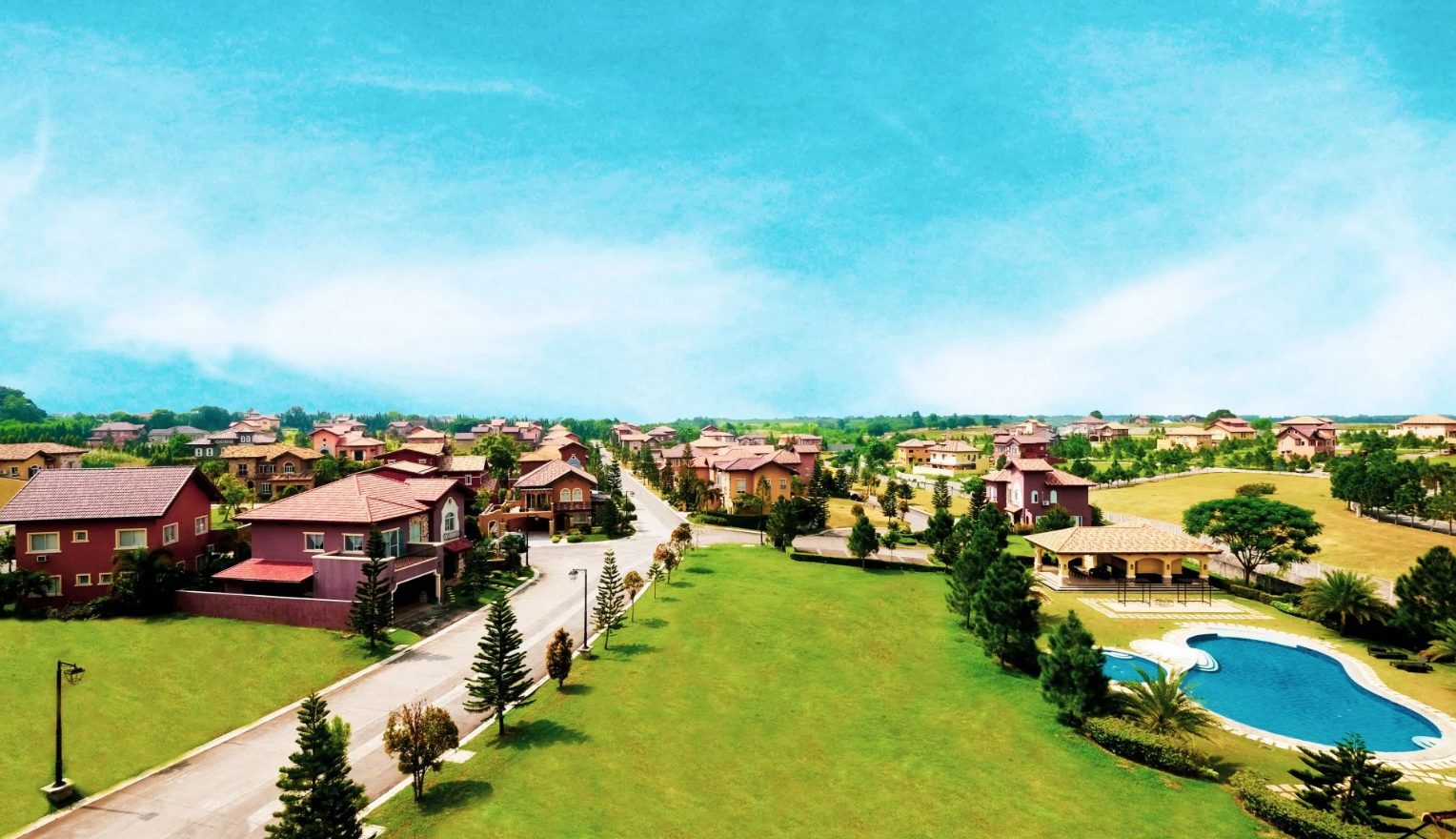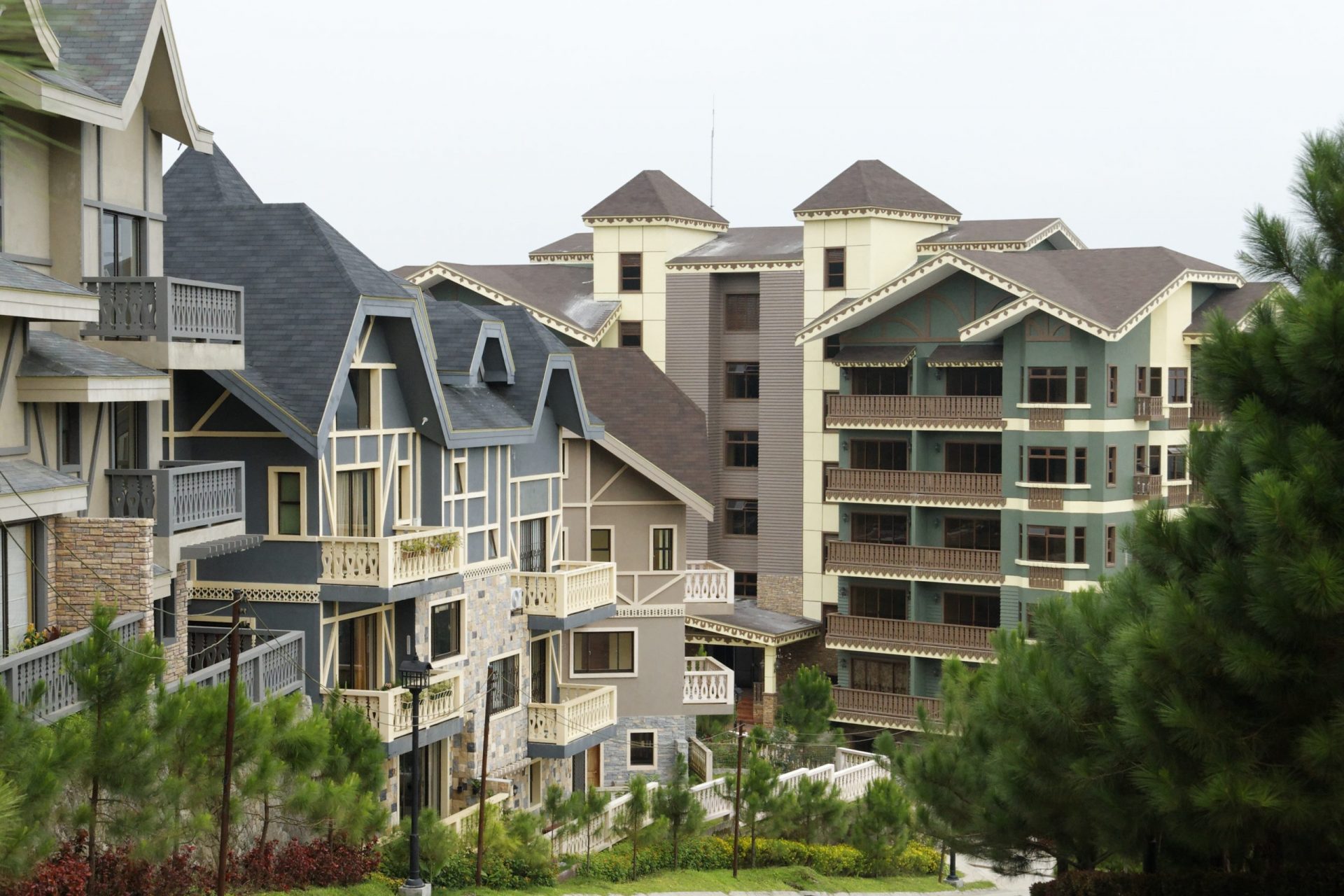BLOGS
Pros & Cons of Wood, Gas, and Electric Fireplaces
When choosing a fireplace for your luxury house and lot in Tagaytay, it is crucial to consider the pros and cons of each type: wood, gas, and electric fireplaces. Each offers unique advantages and drawbacks that you should weigh carefully before making a final decision. Wood fireplaces are the traditional option, offering an inviting ambiance and plenty of heat output.
Gas and electric fireplaces are more modern and convenient but may not provide the same level of comfort as wood. By comparing the pros and cons of each type of fireplace, you can make an informed decision about what is best for your home in Crosswinds Tagaytay. Read on to learn more about wood, gas, and electric stylish fireplaces.
Wood Fireplace
Is it Worth Having a Wood-Burning Fireplace?
Wood-burning fireplaces are a cozy and traditional way to add warmth to luxury homes in Tagaytay. They provide a quiet, comforting ambiance, and the smell of burning wood can bring back fond memories. In addition, unlike gas or electric fireplaces, they require no installation or extra utility costs; all you need is wood and a flue.
On the other hand, wood-burning fireplaces are less efficient or cost-effective than gas and electric fireplaces. They require constant tending to keep a steady flame, produce large amounts of smoke and particulate pollution, and be difficult to clean. The installation of a chimney is also expensive and requires regular maintenance. In addition, they need a constant supply of wood, which can be costly or inconvenient.

What Wood is Best for a Fireplace?
When choosing the right wood for a fireplace in your pre-selling lot for sale, there are several factors to consider. Generally speaking, the best woods for fireplace are hardwoods such as oak, cherry, and walnut. Hardwood is denser than softwood and creates longer-lasting fires with more heat output. It also burns slower than softwood, allowing you to enjoy a longer-lasting fire.
When burning hardwood in the fireplace, it is vital to ensure the wood is properly seasoned. This means that it has been stored for at least six months, preferably up to one year, so that the moisture content of the wood has been significantly reduced. Properly seasoned wood will burn hotter and cleaner than green, unseasoned wood.
You should also consider the size of the logs you plan to use in your fireplace. Logs that are too large may cause smoke or creosote buildup due to incomplete burning, while logs that are too small can reduce heat output. If possible, split larger logs into smaller pieces of equal size.
How Long Does a Fire Last in a Wood-Burning Fireplace?
The length of time a fire will last in a wood-burning fireplace depends on several factors. The design and efficiency of the fireplace, the type of fuel being burned, and how it is monitored all affect how long the fire will burn. In general, fires can last anywhere from 20 minutes to four hours or more, depending on these conditions.
The fireplace’s efficiency is determined by how well it is sealed and insulated. An efficient design will draw air from outside for combustion and provide tighter control over the draft, allowing a fire to burn hotter and longer. On average, an efficient wood-burning fireplace can last anywhere between two and three hours.
Gas Fireplace
What are the Disadvantages of a Gas Fireplace?
Gas fireplaces are becoming increasingly popular, but they do have some drawbacks. The initial installation cost in your luxury house and lot in Tagaytay can be somewhat expensive depending on the model chosen and any additional features desired. Installation typically requires professional help and specialized venting for proper operation and safety considerations.
Gas fireplaces may not provide the same intense warmth as a wood fireplace, though they can still provide adequate heat. For optimal performance, you’ll need to have the fireplace inspected and cleaned regularly by a professional contractor. This cost is something that many homeowners overlook when considering their options.

Does a Gas Fireplace Burn a Lot of Gas?
The short answer to the question is that it depends on how you use it. Gas fireplaces are usually quite efficient and do not consume large amounts of fuel, but they can still be relatively expensive to operate if used inefficiently.
When running on natural gas, the cost to operate a gas fireplace will depend on how much gas you are using. Generally speaking, the larger the flame and the longer it burns, the more money you will be spending. The efficiency of your fireplace can also affect its overall energy use – some models are designed to be more efficient than others, so they use less fuel when burning.
Which is Better: A Vented or Ventless?
Ventless gas fireplaces offer many advantages over their vented counterparts. Firstly, they are more efficient in energy usage as they don’t require an open flue or chimney and instead use the same air already in the room to fuel the flame. This makes them ideal for any home or office where space or budget limitations would otherwise prevent the installation of a vented system.
However, there are also some drawbacks to ventless gas fireplaces that should be considered before installation. Firstly, as the combustion process does not involve an open flue or chimney, all the byproducts (such as carbon monoxide) produced during a burning stay in the room where they were produced. This means that it is important to ensure the room and surrounding area are adequately ventilated to prevent any adverse health effects from developing.
Additionally, as ventless gas fireplace does not have a flue or chimney to exhaust the combustion byproducts, they can have an unpleasant smell when used for extended periods. This is especially true if the room is used for burning is small and without adequate ventilation, as any smell generated by burning can quickly become overwhelming.
Electric Fireplace
Is An Electric a Good Idea?
Electric fireplaces provide an attractive and convenient way to heat your home. These appliances are designed to produce the same aesthetic appeal as traditional wood-burning fireplaces while eliminating many associated risks and inconveniences. Electric fireplaces use a system of coils to generate electric currents that heat metal elements, producing a warm, inviting glow without any smoke or embers. Due to the nature of their design, electric fireplaces are both cost-effective and efficient in terms of energy usage.
Electric fireplaces also have several safety features that make them an excellent choice for households in Crosswinds Tagaytay with young children or pets. They generally include features such as an auto shut-off system, preventing any risk of accidental fires, as well as a childproof switch to prevent children from tampering with the settings.

Does An Electric Use a Lot of Energy?
Electric fireplaces use electricity to create a realistic flame effect and often provide heat. As with any electrical appliance, the amount of energy used depends mainly on the fireplace’s size, type, and setting. Generally speaking, electric fireplaces tend to be quite efficient when compared to traditional wood-burning fireplace.
Most electric fireplace will produce a flame effect using just 15-20 watts. This is significantly less than other heating appliances, such as space heaters, which can use up to 1500W or more. Similarly, the wattage used when producing heat from an electric fireplace will depend on the size and settings chosen but is typically about 750-1500W.
Final Words
When choosing the right kind of fireplace for your home, it is essential to consider each type’s pros and cons. Wood-burning fireplaces provide a classic aesthetic but require more maintenance and can be dangerous if not properly maintained. Gas fireplaces offer convenience and efficiency but come with their safety concerns. Electric fireplaces are attractive, safe, and cost-effective but may not be suitable for larger rooms.
Ultimately, your best choice will depend on your individual needs and preferences. No matter which type of fireplace you choose, it is vital to ensure that all safety guidelines are followed to enjoy a warm and cozy home or office with minimal risks.
Suggested Read: What Impact Will Climate Change Have On Property Values
Suggested Read: Benefits Of Wood-Burning stoves For Your Luxury Home
Suggested Read: How To Design Your Home: Colors Of Switzerland
Suggested Read: What Are 2000-2021 Energy Asset Accounts
Suggested Read: Gas Stations Within Baguio















